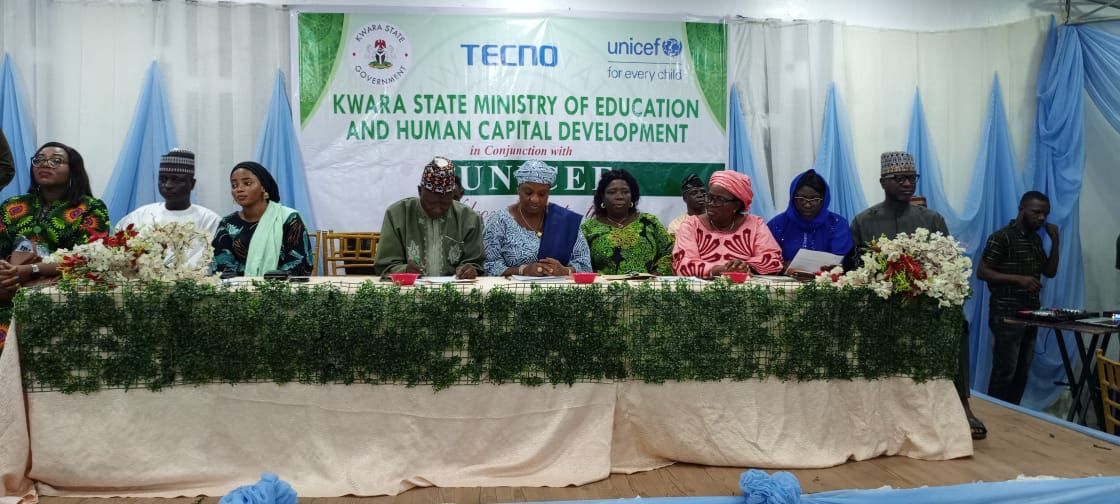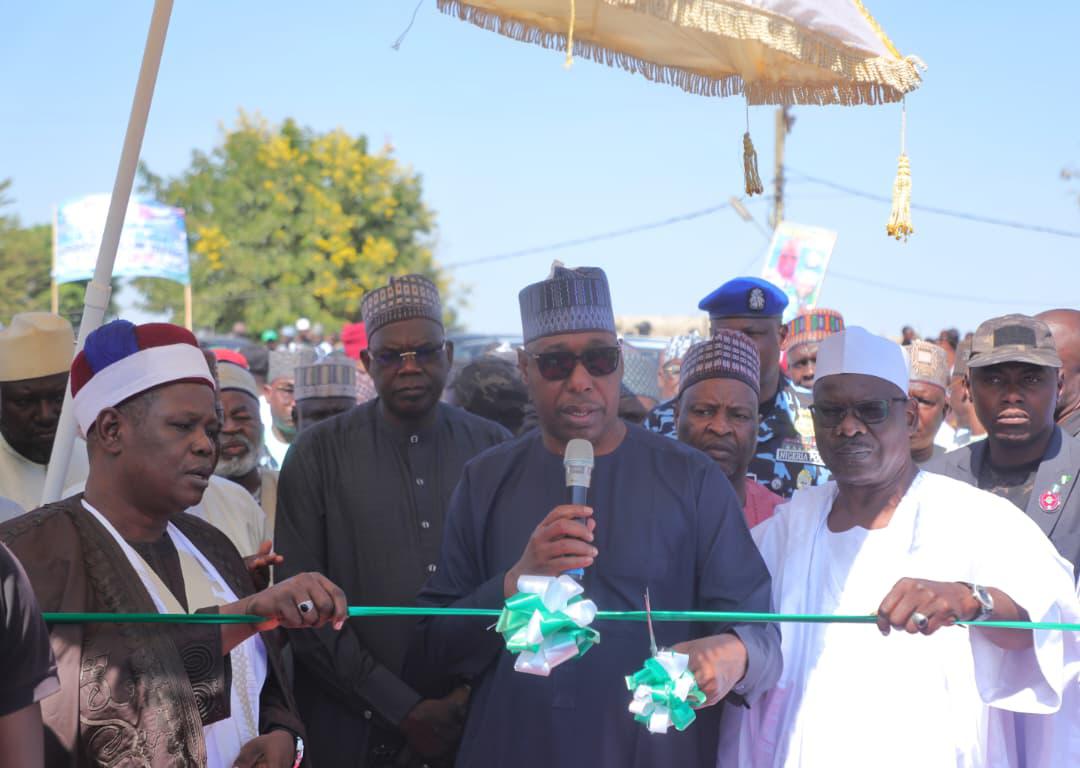
The United Nations Children’s Fund (UNICEF) has renewed its partnership with the Kwara State Government, launching the Nigeria Learning Passport (NLP) in the state.
The NLP is a digital learning platform designed to provide children with access to quality education, regardless of their location. UNICEF aims to train 3,000 teachers in Kwara State on digital literacy skills within one year, enabling them to deliver effective instruction to 120,000 children using the NLP platform.
The Guardian reports that the development marks the first engagement between the UNICEF and Kwara State government in 13 years.
The NLP is an online educational platform designed to provide continuous access to quality education for Nigerian learners, especially those out of school, in need of additional support, or in areas with limited access to technology or educational facilities.
Speaking at the launch event in Ilorin, UNICEF’s Chief of the Field Office in Kaduna, Gerida Birukila, described the initiative as a significant restart of collaboration between UNICEF and Kwara State in the education sector.
Birukila, represented by the Education Officer of the UNICEF Kaduna Field Office, Bala Dada, said that Kwara is the 20th state to join the global movement of reimagining education through the NLP.
“With the support of Microsoft, GPE, Airtel, HIS towers, and TECHNO, this partnership will build the capacity of 3,000 teachers on digital literacy skills to deliver quality basic education to 120,000 children in Kwara State within one year, providing greater access to reduce the number of out-of-school children (OOSC) and increase literacy and numeracy,” Birukila stated.
She further explained that the Learning Passport was created globally by UNICEF and Microsoft during the COVID-19 pandemic when 1.6 billion learners were unable to access education.
“Since 2022, the project has enrolled 1,478,984 students. The Learning Passport is available for free online, on mobile, and offline devices. We are working with Airtel to bridge the data and connectivity gaps, allowing access to the NLP without data costs for Airtel users,” she added.
Governor Abdulrahman Abdulrazaq, represented by the Secretary to the State Government, Mamman Jibril, expressed his administration’s commitment to policies and programs that promote accelerated educational development.
“Along with massive investments in the establishment of digital literacy centres across the state in collaboration with the UBEC, I am happy to say that our strategy has drastically improved literacy and numeracy levels, raised enrolment of learners in the state, and reduced the rate of out of school children,” Mr AbdulRazaq added.
He also noted that the state’s strategy has improved literacy and numeracy levels, increased learner enrollment, and reduced the rate of out-of-school children through digital literacy centres in collaboration with the Universal Basic Education Commission (UBEC).
UNICEF commended Kwara State for its investment in digital education through programmes like the Kwara Education Transformation Agenda (KWETA), StudyLab, KwaraLearn, and Digital Learning Centres, stressing the state’s role in ensuring access to quality education despite significant challenges.
UNICEF is a global organisation focused on improving the lives of children and their families, particularly in areas of emergency response, education, healthcare, and child protection. Established in 1946, UNICEF operates in over 190 countries and territories to support the most vulnerable children and adolescents.






